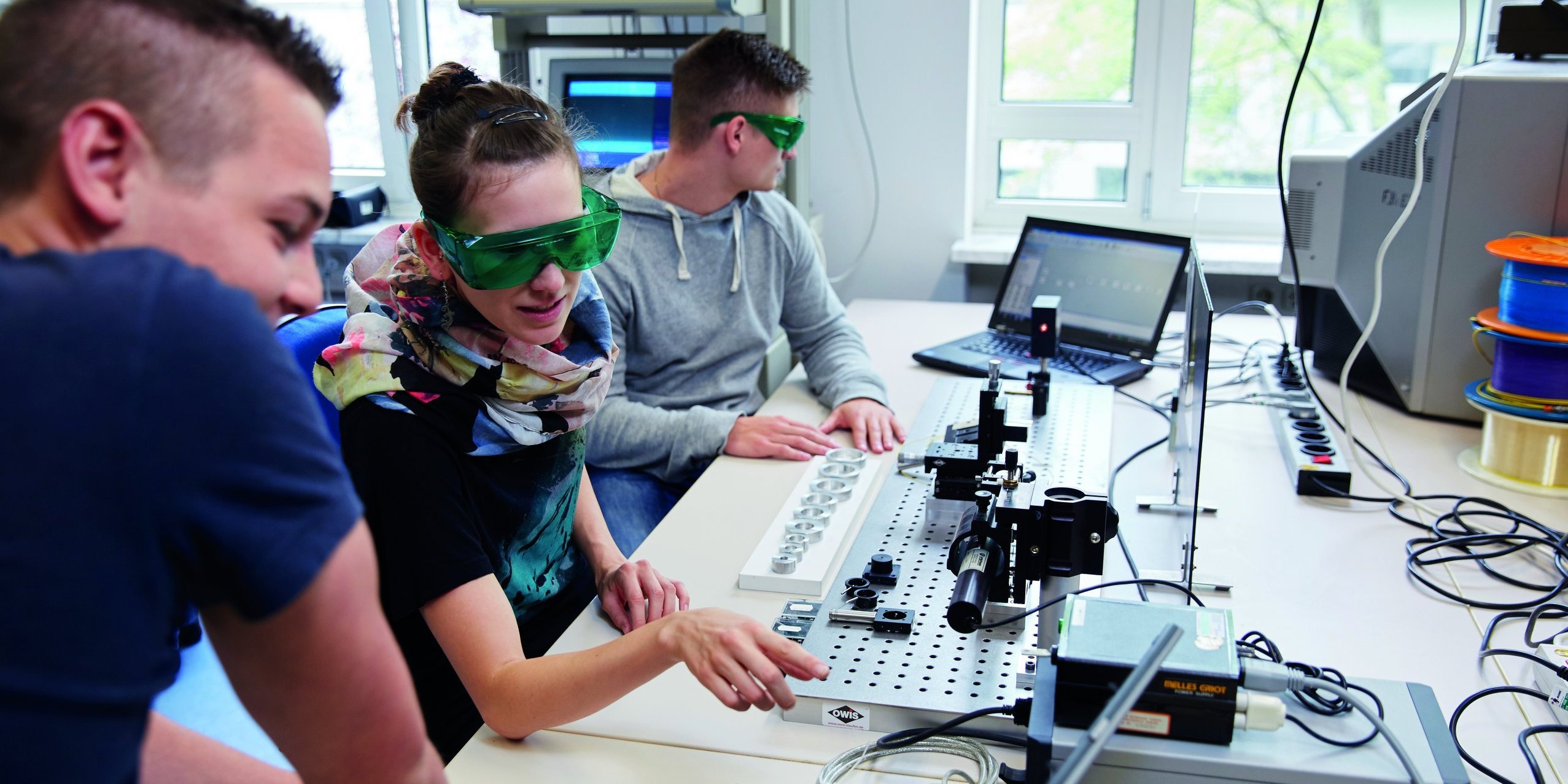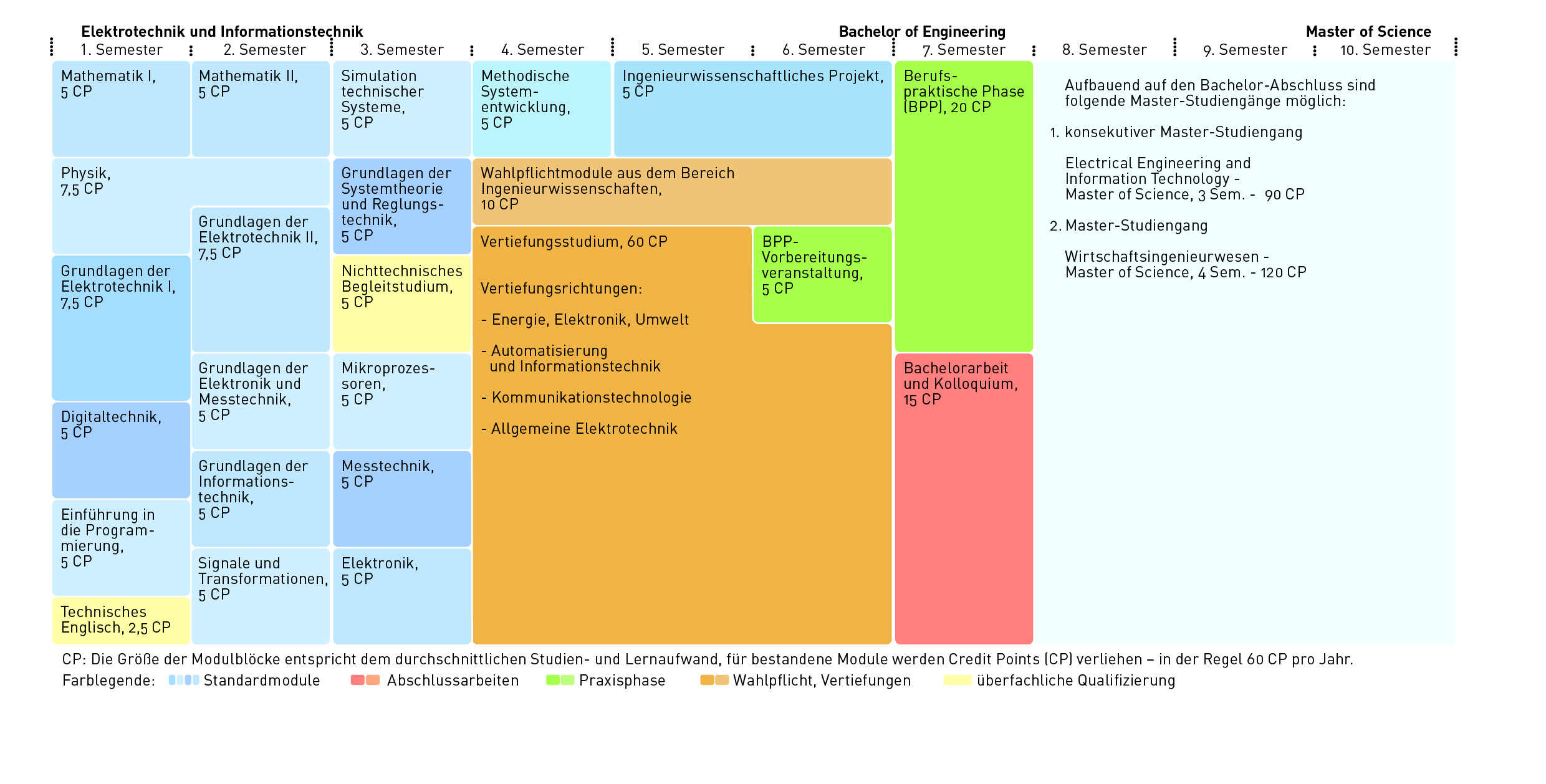
Electrical Engineering and Information Technology (Bachelor of Engineering)
| Semester | 7 Semester |
| Darmstadt | |
| Winter semester/summer semester | |
| GER | |
| Without admission restriction. | |
| yes |
Content
How can television, Internet and telephone be combined in one device? How is photovoltaic electricity optimally fed into the public grid? Why does an industrial robot always grip the right part? What technology ensures that aeroplanes weighing several tonnes touch down precisely on the runway? Questions like these are the focus of students in the Bachelor's degree program in Electrical Engineering and Information Technology. In the first three semesters, basic knowledge in mathematics and physics is acquired, as well as the basics of electrical engineering and information technology. Afterwards, students can choose between three specializations:
- Energy, electronics and environment
- Automation and information technology
- Communication Technology
You can find more detailed information about the degree programme on the website of the Faculty of Electrical Engineering and Information Technology.
Perspectives
Electrical engineers work in the following areas
- Research and development,
- Design and manufacturing,
- Product marketing and sales as well as project management in the construction of complex plants.
in Sectors (selection): Electrical industry (electrical appliances, power supply), automotive and vehicle construction, IT industry, medical technology, chemical industry, mobile communications, railway systems, aviation industry, renewable energies.
Based on the Bachelor's degree, the following Master's programmes are possible:
Electrical Engineering and Information Technology - international - Master of Science
Electrical Engineering (continuing education) - Master of Science (work experience necessary!)
Industrial Engineering - Master of Science
Reliability Engineering (Distance learning programme) (work experience necessary!)
Structure
The know-how necessary for the practice is conveyed through lectures, laboratory activities, exercises and project work. Team competencies as well as language and presentation skills
equip the future engineers for international projects. You can find a detailed presentation of the course contents in the module manual (German). The Bachelor of Engineering (B.Eng.) degree is a professional qualification, but also allows the transition to Master's degree courses (see diagram).
Dual study programme
Electrical Engineering and Information Technology (B.Eng.) can also be pursued as a dual study programme. Further information can be found on the website of the faculty.
Access
The degree programme Electrical Engineering and Information Technology (B.Eng.) is not admission restricted (no NC). By the end of the third semester, proof of eight weeks of practical training must be provided. The following qualifications, among others, are required for admission:
- General matriculation standard (allgemeine Hochschulreife)
- Subject-related entrance qualification (fachgebundene Hochschulreife)
- Advanced entrance qualification for universities of applied sciences (Fachhochschulreife)
A detailed description of the admission requirements can be found in the Special Provisions of the Examination Regulations (German).
Contact
Prof. Dr. Michael Kuhn
+49.6151.533-68249
studieninfo@eit.h-da.de
1
Consultation
Donnerstags, 10.45 Uhr oder nach Vereinbarung
Sprechstunde entfällt am 6. November 2025
